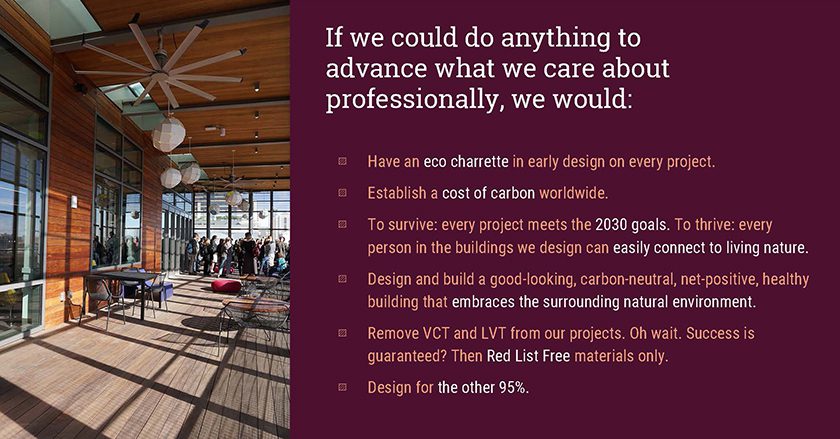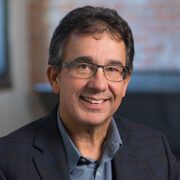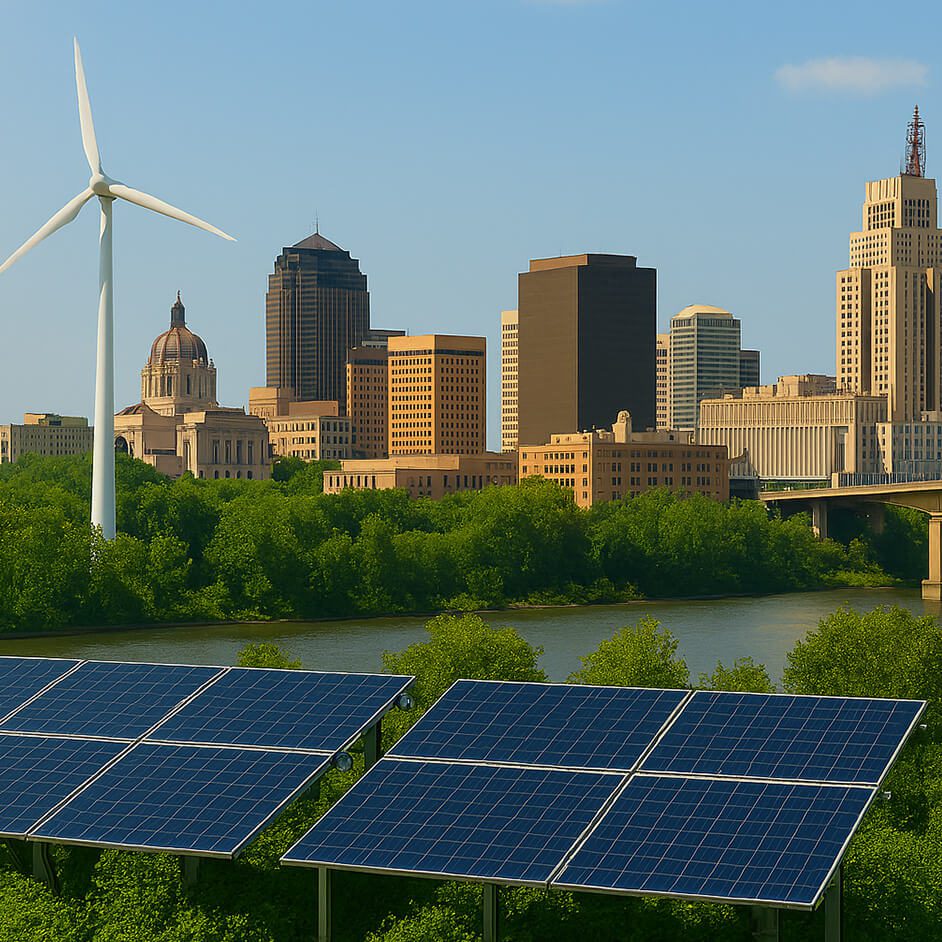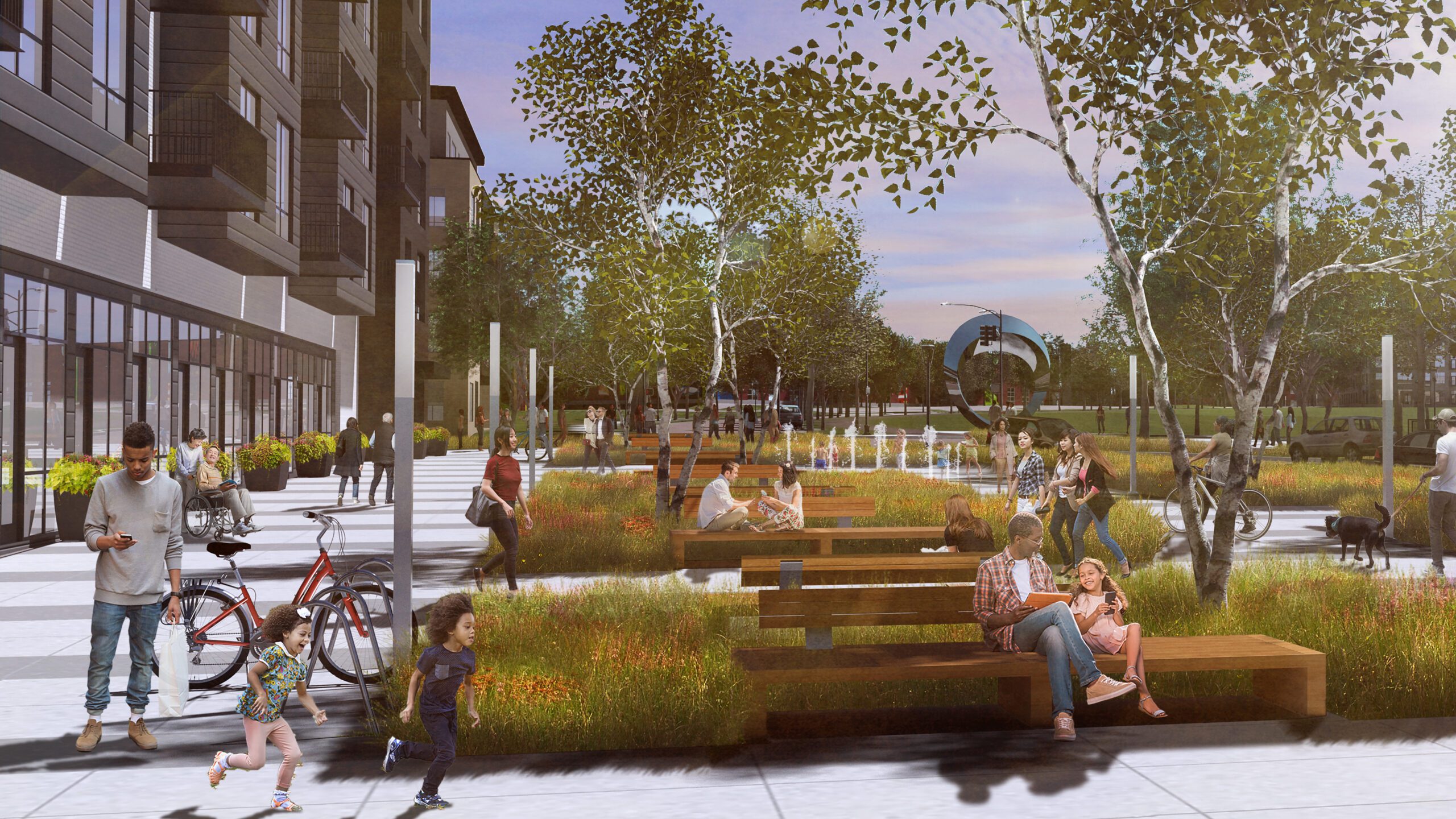
Every once in a while, we get to be a part of something that is so impactful we realize it in the moment, not just looking back. My first USGBC event at Big Sky in 1995 with about 75 other green building advocates was one of those times. Attending that event were Pliny Fisk, founder of the Center for Maximum Potential Building Systems (CMPBS) and creator of the Austin Green Builder Program in 1991, along with Nadav Malin and Alex Wilson, founders of Environmental Building News (EBN), who together were one of our only resources in 1991 as we started on this journey. EBN has evolved into BuildingGreen and now hosts a biannual summit (SDL Winter Summit) that I was honored to participate this January in Austin, Texas. I had the privilege of presenting our work to about 50 of today’s sustainable design leaders in the US, including the three individuals mentioned above. It was one of the highlights of my career and another moment that made me proud of what we do at LHB. Although it was very difficult to narrow down, here are a few of my main takeaways from the SDL Winter Summit.
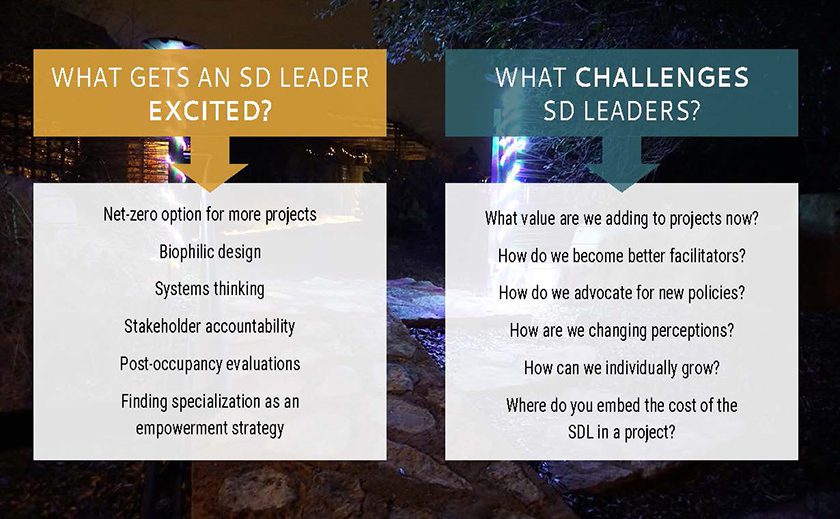
Barriers to Sustainability
There was a lot of discussion about how to get everyone on board and make projects as sustainable as possible. Clearly, staff education (literacy), client desires, climate, and many other factors make a big difference. The two barriers that rose to the top were 1) time and 2) establishing goals early enough to make a difference (before the “first line is drawn” or FLID). Most SDL firms have a team of some size that provides sustainability support, and they all struggle with how chargeable this staff is, whether clients will pay for it, and if they do everything themselves (like early modeling) or provide knowledge for design team members. The which currently obtains grant funding for research, is unique among A&E firms. Allowing projects to get fairly far down the road in terms of form and major systems before setting goals is not. At LHB, we are working on pathways for our Research Studio to assist our project teams in establishing sustainability goals before the FLID.
How LHB fits into the larger pool of A&E firms striving for sustainability
Among the SDL firms, LHB is quite unique in our focus on primary research. There were other firms that did some applied research (research that is directly applicable to the projects they design), but even that was rare. In terms of our dreams, successes, failures, and struggles getting our projects to be as sustainable (or regenerative) as possible, we appear to be aligned with the top firms in the country. In the past year, I’ve scheduled tours and talked with top sustainability leaders at Mithun and Lake Flato and have future meetings set up in the Portland, OR area in May. Through these opportunities for knowledge sharing, I see the most realistic view of the other leading sustainable design firms, how we compare, what we can learn from them, and what they can learn from us. (If you’re looking for some knowledge sharing virtually check out dogrun)
Next steps, the future of sustainability
The SDL Winter Summit began and ended with a discussion about the long-term vision for sustainability in design. We all acknowledged that looking back, the vision 20 years ago was the development of guidelines like LEED, but that may not be the long-term future. I presented LHB’s concept of Thrive, where sustainable projects (LEED, Net Zero Energy, WELL, etc.) represent the middle and going beyond to regenerative is the aspirational vision. Thrive appeared to resonate with the group and made me feel that our vision for the next 10-15 is on the right path. Our task now is to clearly communicate and pursue that vision for our Integrative Design Team at LHB.
